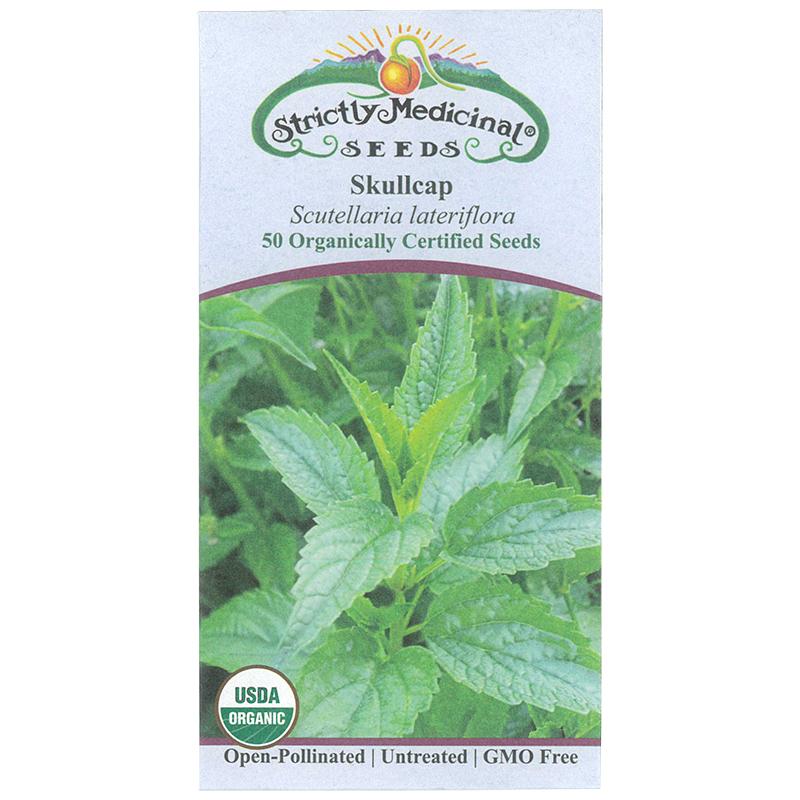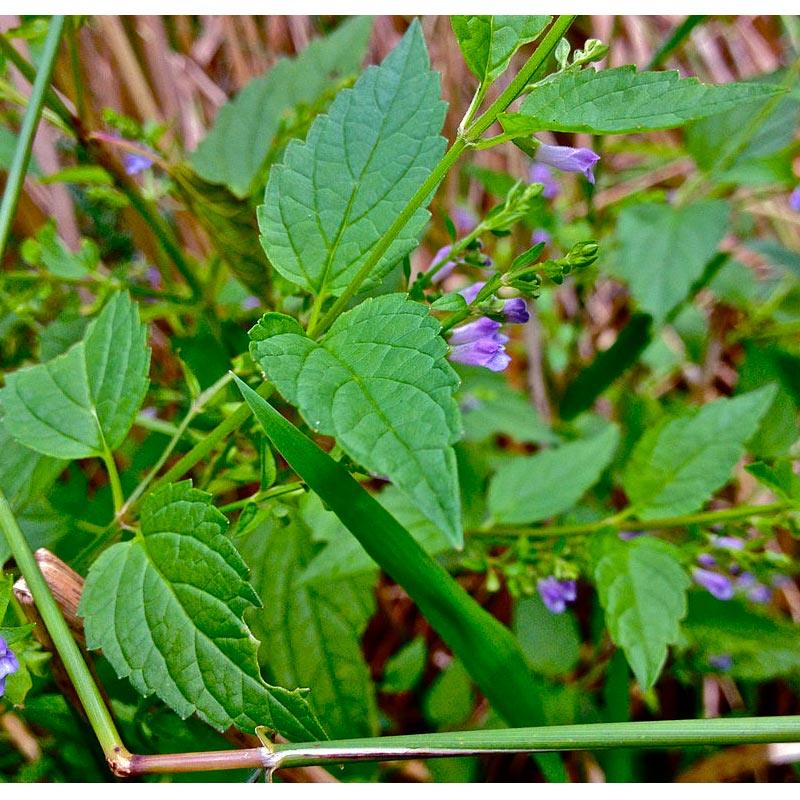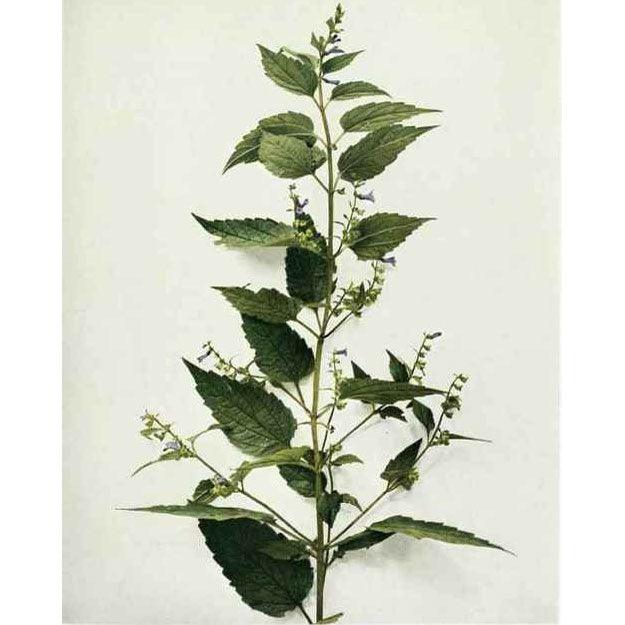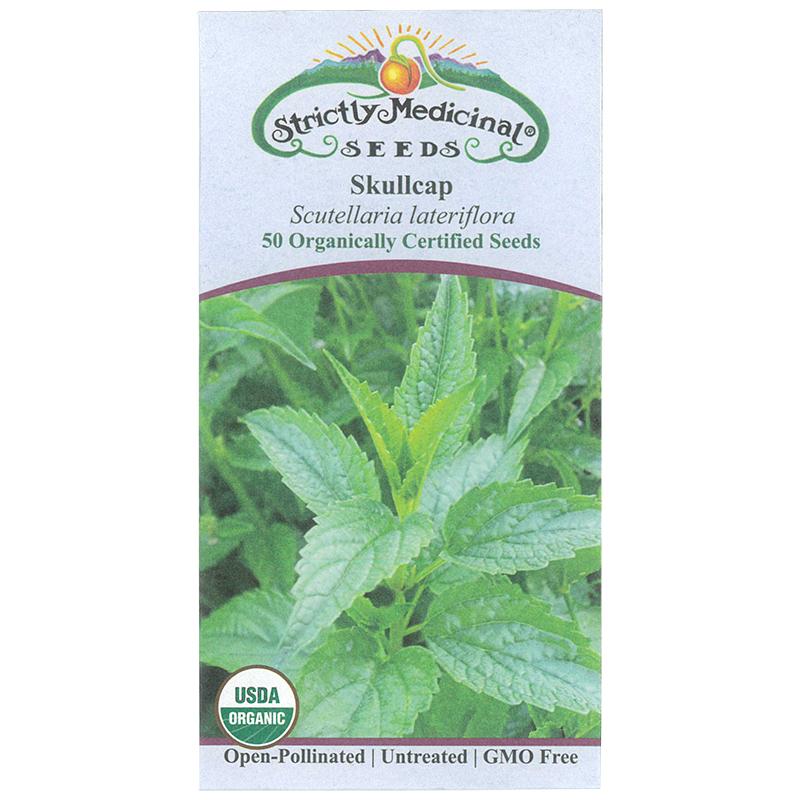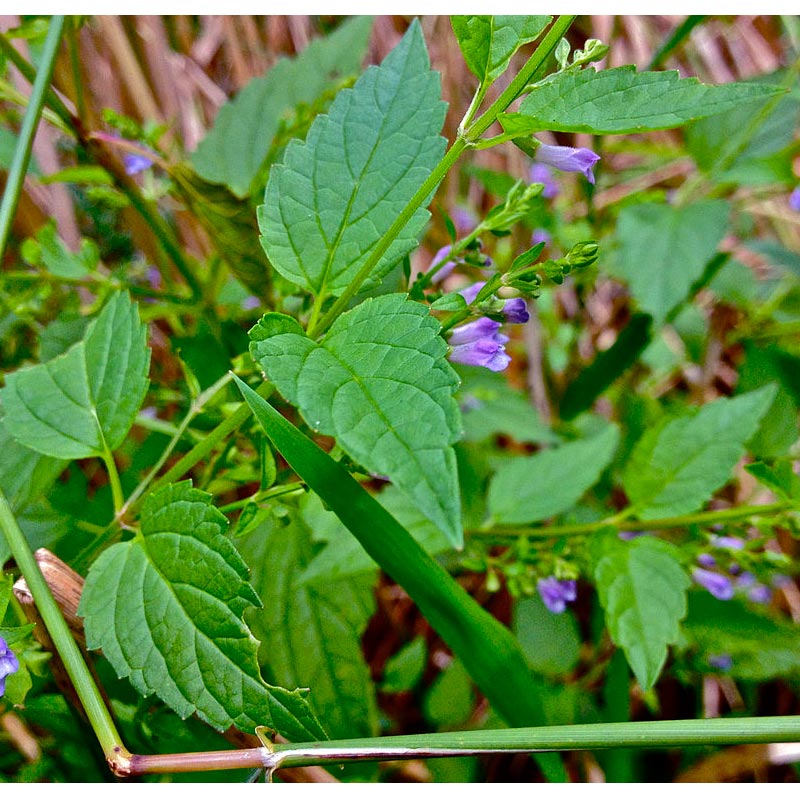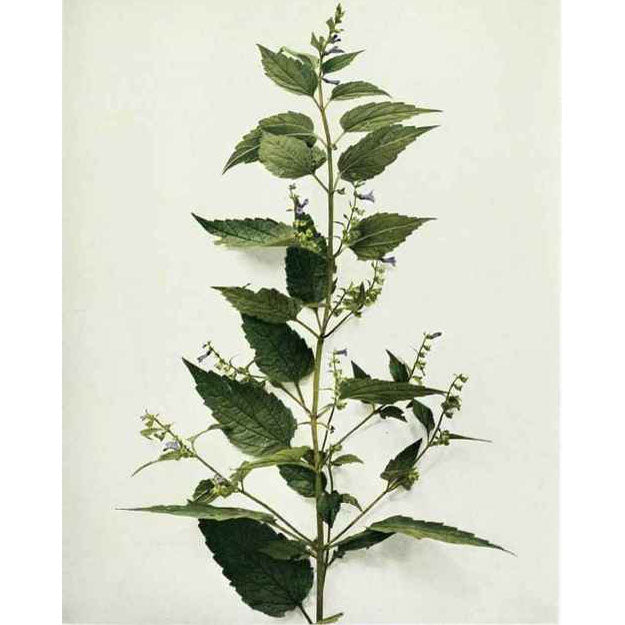Item Number: SNV7036
Skullcap Seeds (Organic)
Skullcap Seeds (Organic)
Calm with a Skullcap Tea or Tincture
Skullcap - Scutellaria lateriflora
Short-lived creeping herbaceous perennial hardy to -15 degrees F. Flowers blue to 2 feet tall.
Organically grown. 100 seeds/pkt.
Growing skullcap, including varieties like American Skullcap (Scutellaria lateriflora) and Chinese Skullcap (Scutellaria baicalensis), offers a unique insight into the world of herbal cultivation. These herbs, with their rich history in traditional practices and interest in scientific research, are intriguing for both gardeners and herbal enthusiasts.
Introduction to Skullcap
- American Skullcap (Scutellaria lateriflora)**: This herb is native to North America, thriving in moist, rich soils and partially shaded areas. It has been a subject of interest in various phytochemical and biological studies.
- Chinese Skullcap (Scutellaria baicalensis)**, known as Huang Qin in Traditional Chinese Medicine (TCM), is distinguished by its use of roots. The roots of Scutellaria baicalensis have been historically significant in TCM.
Cultivation Tips
The American Skullcap prefers environments that mimic its native woodland habitat, requiring moist and nutrient-rich soil. Conversely, the Chinese Skullcap is more adaptable to sunnier and drier conditions, though it also requires well-drained soil for optimal growth.
Phytochemical and Biological Analysis
Studies have focused on the phytochemical profiles of these plants, exploring their various natural compounds. Research in this area continues to uncover new information about these herbs, contributing to a broader understanding of their properties.
Traditional Use and Research
Both variants of skullcap have a longstanding history in herbal practices. The American Skullcap has been noted for its use in traditional herbal applications, while Huang Qin has been a component in TCM for various applications.
Contemporary research has begun to explore these traditional uses, delving into the various aspects of skullcap. This research is often grounded in historical practices, providing a modern perspective on these ancient herbs.
General Considerations
While skullcap varieties are of interest for their historical and cultural significance, it's important to approach their use with a general understanding of herbal practices. Awareness of potential interactions with other plants or substances is part of responsible herbal use.
Growing and Using Skullcap
For those interested in growing skullcap, whether for personal enjoyment or educational purposes, it's essential to consider the specific needs of each variety. The use of these herbs in any form should be approached with a respect for their natural properties and an understanding of herbal practices.
Growing skullcap, be it the American or Chinese variety, offers an engaging experience for those interested in herbal gardening and the history of herbal practices. These plants, with their intriguing backgrounds and the subject of ongoing research, provide a fascinating glimpse into the world of natural herbs. As with any herb, understanding and respecting their properties and historical context is key to a rewarding experience in both cultivation and study.
Photo by Fritzflohrreynolds


Check Your Zone Compatibility:
Compatible with your zone.
Growing Zone for
,

Our Guarantee To You
Since 1976, we've served our customers at every stage of growing. Please contact us at any time. We are happy to support and assist you.
Description
Description
Skullcap - Scutellaria lateriflora
Short-lived creeping herbaceous perennial hardy to -15 degrees F. Flowers blue to 2 feet tall.
Organically grown. 100 seeds/pkt.
Growing skullcap, including varieties like American Skullcap (Scutellaria lateriflora) and Chinese Skullcap (Scutellaria baicalensis), offers a unique insight into the world of herbal cultivation. These herbs, with their rich history in traditional practices and interest in scientific research, are intriguing for both gardeners and herbal enthusiasts.
Introduction to Skullcap
- American Skullcap (Scutellaria lateriflora)**: This herb is native to North America, thriving in moist, rich soils and partially shaded areas. It has been a subject of interest in various phytochemical and biological studies.
- Chinese Skullcap (Scutellaria baicalensis)**, known as Huang Qin in Traditional Chinese Medicine (TCM), is distinguished by its use of roots. The roots of Scutellaria baicalensis have been historically significant in TCM.
Cultivation Tips
The American Skullcap prefers environments that mimic its native woodland habitat, requiring moist and nutrient-rich soil. Conversely, the Chinese Skullcap is more adaptable to sunnier and drier conditions, though it also requires well-drained soil for optimal growth.
Phytochemical and Biological Analysis
Studies have focused on the phytochemical profiles of these plants, exploring their various natural compounds. Research in this area continues to uncover new information about these herbs, contributing to a broader understanding of their properties.
Traditional Use and Research
Both variants of skullcap have a longstanding history in herbal practices. The American Skullcap has been noted for its use in traditional herbal applications, while Huang Qin has been a component in TCM for various applications.
Contemporary research has begun to explore these traditional uses, delving into the various aspects of skullcap. This research is often grounded in historical practices, providing a modern perspective on these ancient herbs.
General Considerations
While skullcap varieties are of interest for their historical and cultural significance, it's important to approach their use with a general understanding of herbal practices. Awareness of potential interactions with other plants or substances is part of responsible herbal use.
Growing and Using Skullcap
For those interested in growing skullcap, whether for personal enjoyment or educational purposes, it's essential to consider the specific needs of each variety. The use of these herbs in any form should be approached with a respect for their natural properties and an understanding of herbal practices.
Growing skullcap, be it the American or Chinese variety, offers an engaging experience for those interested in herbal gardening and the history of herbal practices. These plants, with their intriguing backgrounds and the subject of ongoing research, provide a fascinating glimpse into the world of natural herbs. As with any herb, understanding and respecting their properties and historical context is key to a rewarding experience in both cultivation and study.
Photo by Fritzflohrreynolds
Shipping Information
Shipping Information
Shipping Weight: 0.01 lb
Dimensions: 5.0"L x 2.625"W x 0.1"H
Features
Features
- Attracts Bees/Butterflies
- Cold Hardy
- Does Not Require Support
- Down to 25°F
- Good for Drying
- Open-Pollinated
- Requires Summer Water
- Shade Tolerant
- Tolerates Poor Drainage
- Useful for Ornamental
Characteristics
Characteristics
Planting & Care
Planting & Care
Soil & Water: Plant prefers fertile, moist soil, part shade to full sun. Sow in garden in cool soils of fall or early spring, or give 30 days cold conditioning by mixing with moist medium in a plastic bag in the refrigerator, ten sow in warm soils.
Planting & Growing: Sow in garden in cool soils of fall or early spring, or give 30 days cold conditioning by mixing with moist medium in a plastic bag in the refrigerator, ten sow in warm soils. Germination takes up to 30 days. Thin to 6 inches apart.
Harvesting & Storage: Harvest flowers and leaves in mid-August into September or when blooms are about to open. Use fresh or dry if sufficient quantity available.
Useful Information
Useful Information
Guarantee
Guarantee
Share
